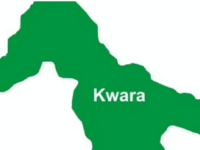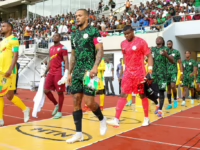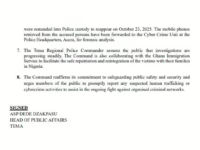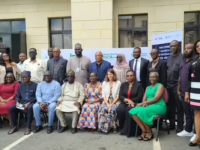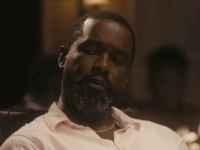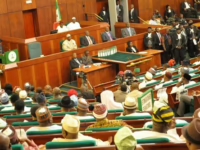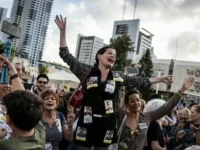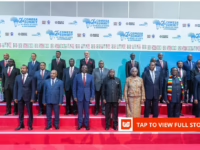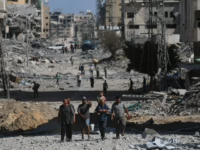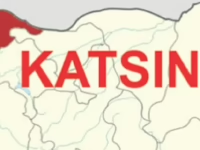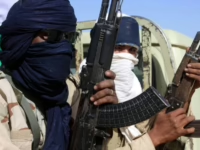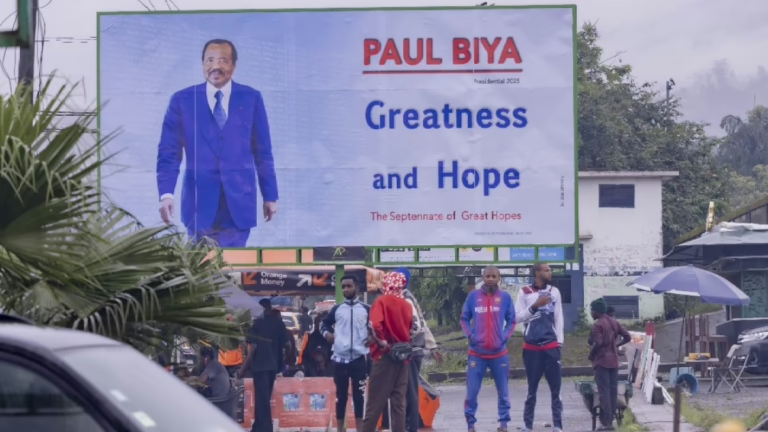Bamenda, Cameroon – On the day of Cameroon’s presidential election in October 2018, 16-year-old Annie Nsalla* observed from her living room window as Anglophone separatist militants unleashed chaos in Bamenda’s streets, firing shots and intimidating voters to prevent them from reaching polling stations.
This election marked the first since armed conflict erupted in the English-speaking North West and South West regions in 2016.
As panic spread and people fled, Nsalla dropped to the ground to avoid stray bullets, cautiously crawling back to the safety of her bedroom.
The traumatic events of that day have left a lasting impact on her, with memories that remain vivid and painful.
Throughout the nearly ten-year conflict, Nsalla has lost at least three family members due to the ongoing violence and instability in her North West community.
Now 23 and eligible to vote, her desire for a brighter future motivated her to register in July, aiming to participate in the upcoming presidential election.
“I’m not doing anything wrong. I want to vote,” she told Al Jazeera, though she admitted uncertainty about actually casting her ballot, fearing a repeat of 2018’s turmoil.
“We live in constant fear that something will happen on election day,” Nsalla explained.
“We feel trapped between two forces: the government’s inability to guarantee security and the threats from the Amba boys [separatist fighters].”
Uncertainty Clouds Election Day
Nsalla’s apprehensions resonate with many residents in Bamenda, the North West’s capital, as well as in the South West region, both of which have endured prolonged unrest and violence.
For years, the Anglophone communities in these regions have voiced grievances over marginalization by the predominantly Francophone government based in Yaoundé. Tensions escalated when separatist groups began armed confrontations with government forces several years ago.
Since the conflict’s onset, separatists have actively discouraged participation in government-led events, including National Day festivities and elections, enforcing boycotts and lockdowns that compel residents to remain indoors during such occasions, including the lead-up to this month’s vote.
Eve Suh*, a first-time voter from Bamenda’s Alahbukan neighborhood-classified as a “red zone” or high-risk area by the government-describes a near-constant presence of gunfire and clashes between separatists and security forces.
Similar conditions prevail in other volatile neighborhoods like Ntankar, where frequent armed skirmishes, arrests, and kidnappings are common.
Against this backdrop, many voters remain undecided about participating in the upcoming election.
Suh shared with Al Jazeera that discussing the election openly is risky, as separatist fighters monitor conversations and intimidate those perceived as supporters of the government.
“No one knows who will vote or where. There are spies everywhere. People fear being killed or kidnapped by the boys,” she said, referring to the separatists.
“It’s a critical moment, but I have no idea what to expect. How can I safely go out to vote without risking my life?”
“Some of us feel trapped. If the lockdown continues, how can we leave our homes? How can we vote? How do we choose who governs us and potentially ends the violence?”
Reports from the 2018 election indicated that over 20 separatist fighters marched through Bamenda’s streets to intimidate voters on election day.
During that election, two separatists were killed by military forces following attacks on polling stations.
Originally, more than 2,300 polling stations were planned for the North West, but security concerns reduced this number to just 74.
For this year’s election, Elections Cameroon (ELECAM) data shows 596 polling stations in the North West with approximately 135,974 registered voters, and 1,908 polling stations in the South West serving about 405,823 voters.

Incumbent Biya Pursues Another Term
As Cameroonians prepare to elect a new president, 92-year-old Paul Biya, the world’s oldest sitting leader, is campaigning for an unprecedented eighth term.
He faces competition from 11 other candidates, including two former ministers: Issa Tchiroma Bakary and Bello Bouba Maigari.
Bakary, who served as communications minister under Biya, once denied the existence of an Anglophone crisis. However, during his campaign stop in Bamenda, he apologized for his earlier remarks.
“I realize many of you were hurt by my statement. You felt betrayed, and I too suffered because I had no choice,” he said, promising to work toward the release and amnesty of political detainees if elected.
Maigari, a former tourism minister, also campaigned in Bamenda, pledging to initiate dialogue with separatist leaders to foster lasting peace.
Biya assumed power in 1982 after the resignation of Cameroon’s first president, Ahmadou Ahidjo. A new term would extend his rule to nearly five decades.
The Anglophone crisis began under Biya’s administration in 2016, initially sparked by peaceful protests from English-speaking lawyers and teachers opposing the imposition of French-speaking judges and officials in their courts and schools.
These protests soon expanded to include calls for independence, prompting a harsh crackdown by government forces in 2017.
The longstanding grievances of the Anglophone minority over marginalization escalated into violent clashes between government troops and separatist militias seeking to establish the breakaway state of Ambazonia-a conflict that continues unabated.
The Norwegian Refugee Council’s June report identified Cameroon as hosting the world’s most overlooked displacement crisis.
Human Rights Watch estimates that at least 6,000 civilians have died in the North West and South West regions since late 2016, casualties of both government and separatist forces.
The United States Committee for Refugees and Immigrants reports that over 900,000 people have been internally displaced by the unrest, with an additional 60,000 fleeing abroad.

Election Uncertainty Persists
During the 2018 presidential election, only a small fraction of residents in the Anglophone regions voted despite widespread interest.
Turnout was severely impacted by armed group activities: just 5.36 percent in the North West and 15.94 percent in the South West cast ballots.
Jeremy Fru*, a Bamenda native and father in his 40s, told Al Jazeera that he braved the insecurity to vote in 2018.
However, he now faces greater risks and doubts his ability to participate this year.
“It’s difficult to say if I can go out and vote like I did in 2018,” he said.
“We’ve been forced indoors for days at a time due to separatist-imposed lockdowns.”
Fru noted that the situation has deteriorated since 2018, with threats intensifying.
“Things have gone from bad to worse,” he said, lamenting that nearly a decade of armed struggle by separatists has failed to bring change.
“I want to see change through voting. It didn’t happen in 2018, but maybe it can this time,” he added, emphasizing that elections remain the only path to unseat Biya’s government.

Navigating the Security Challenge
Political analyst Tilarius Atia, based in Bamenda, describes the security environment in the North West as “extremely difficult.”
He explained to Al Jazeera that separatist groups have expanded their tactics, often catching security forces off guard.
“In 2018, the separatists’ firepower was limited compared to today. They now employ sophisticated explosives, and it’s unclear how far they will escalate on election day,” Atia cautioned.
“It will be a day marked by both ballots and bullets,” he predicted. “Voters will face the dilemma of risking their lives to vote or staying home to remain safe.”
Residents are “anxiously awaiting the outcome, holding their hearts in their hands,” Atia said.
He urged separatist groups to recognize that obstructing voting will not bring change.
“For nine years, they have relied on violence without success. If they truly want change, it must come through the ballot box,” he emphasized.
Stephen Echuchou, a peace and conflict resolution specialist in Buea, the South West’s capital, shares this view.
Echuchou, director of the Center for Peace and Sustainable Development in Africa, told Al Jazeera that while the South West faces volatile security, the North West is engulfed in chaos.
Both regions have been under separatist-imposed lockdowns for about three weeks, with the North West suffering the most severe violence and restrictions.
“The insecurity will suppress voter turnout. In areas controlled by armed groups, people simply won’t be able to vote,” Echuchou said.
“Many want to vote but will be forced to prioritize their safety.”
He called on the national government to resolve the conflict decisively.
“Security must be guaranteed before, during, and after the election to ensure free and fair voting,” he stressed.
Meanwhile, in Bamenda, Nsalla remains determined to vote despite the dangers, hoping for a future where elections can be held without fear.
“I wonder if one day we will be able to vote freely like our fellow citizens in other parts of the country,” she reflected.
*Names have been changed to protect identities.





